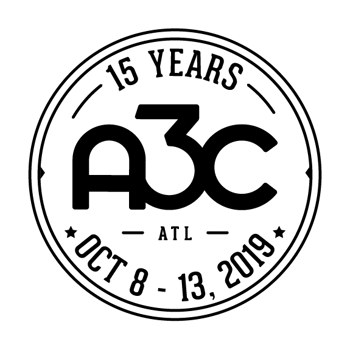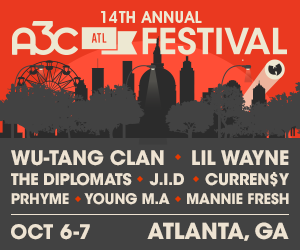One of the first times I was really passionate about the music industry had to do with Justin Bieber. But it wasn't Bieber's music -- it was the principle of the argument! I'll explain...
This argument took place in a music-industry course during my freshman year of college, and we were discussing Justin Bieber's recent success. Now, this wasn't modern day R&B Bieber, this was 2008 purple hoodie, Baby, Baby, Baby Bieber. Kid was young, and all my classmates could focus on was how he wasn't making real music. They were complaining about how his (really harmless) music was poisoning radiowaves, or some.. foolishness.
While my classmates complained about how Bieber sucked, I couldn't help but to get a little mad. Not because I was a Bieber fan, but because they were missing the point. Of course they didn't like Justin Bieber's music, we were in our 20's! Bieber's music wasn't for us -- it was for pre-teen and early teenage girls. Kids who still had access to Mommy and Daddy's credit cards, and parents who were of a generation that still pays for music, merch and concerts regularly.
This wasn't about if you liked Justin Bieber, it's if you can see his business operation! He was working a great angle in his target market, and doing it flawlessly.
This goes beyond the Biebs, too. There's plenty of artists out there that you aren't going to like. There's plenty of artist you're going to see and say.. "how'd THEY make it?!". But before you bash them, find out how they made it. Take notes. Instead of hating on an artist's come-up, first we must study it.
In this list, you'll find artists you enjoy and maybe artists you don't, but regardless -- underneath musical tastes, you're going to find some unique ways they found success, and how YOU can emulate it.
This is also not a "top" list or anything of that nature. Just a few artists with good come-up stories.
Enjoy.
1. Rory Fresco Signed a Deal Due to a SoundCloud Algorithm.
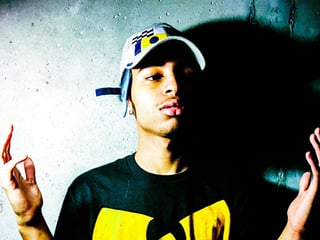
Now, this is a light-come up, as Rory is still fresh in his come-up-ness, but it's a fun story that mixed a good opportunity with good, solid moves.
You may have read about his story in Fader, or if you're tapped into the indie music community in Kansas City, you might even know him. I remember Rory Fresco had just introduced himself to me and wanted some advice on getting press, and then two days later chaos ensued. Due to SoundCloud's completely random algorithm, his single "Lowkey"automatically played after Kanye West's brand new track, "New Friends" which debuted on SoundCloud. So, when people tuned in to Kanye's latest track, they were immediately met with Rory's "Low Key" on autoplay. This was totally a random occurance.
This increased visibility led to some press (namely Fader which led to further pick-ups in Complex and more). Which ultimately resulted in a record deal with Atlantic.
The deal is still fresh, but the single has been remixed with a feature from G-Eazy, and there's also some talk of some other moves going down soon. It's early, but he's seen massive social media growth as well as a major backed team looking out for him.
What We Can Learn?
Just seems like he got lucky, right? He got randomly placed after a Kanye track and got a deal. Sure, that played a factor in it, but there was some other foot work too.
Yes, there was luck -- but I think it would better be described as "opportunity", that was met with the proper action. Upon his SoundCloud come-up, Rory and his manager reached out to various press outlets, and ensured his social media and other forms of messaging were consistent and engaging.
He was able to keep momentum going by seeking out press, while the SoundCloud track was still hot. Then when the Fader article came out, he further reached out to press to ensure reposts and further coverage.
We can learn that the industry is all about leverage. There's never just "one win", it's small wins stacked upon eachother. Sure, SoundCloud/Kanye was great exposure -- but the question always is, how I can further this for maximum reach?
Young Rory is still new to the game, but this is a great example of leveraging a come-up to a major facing opportunity.
2. A$AP Mob & The Genius of Yams.
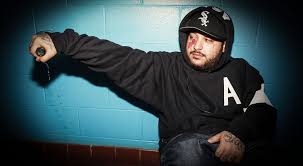
Folks talk about A$AP Mob and Yams a lot and most even consider Yams a "legend", simply because he was the groups leader. However, he was more than a leader, he was a visionary of the underground and blossoming music-blog scene.
What people forget, or even overlook, is the fact that Yams built his A$AP empire from the micro-blogging platform, Tumblr. While Tumblr has grown in popularity since it's purchase from Yahoo a few years ago, it's about as underground a platform as you can get. The "secret rule" on Tumblr is to NEVER mention that you have a Tumblr to people you don't know. Why? Because Tumblr uses like keeping their community tight-knit. They don't want it to be overpopulated or mainstream.
And despite Tumblr flourishing by being lowkey, it launched the careers of the entire A$AP Mob (and other artists such as Odd Future).
A$AP Yams perfected Tumblr by generating a music blog, one that focused on hip hop and rising hip hop acts. This blog became so influential, that Yams began featuring artist that he worked with. One of them being this new artist, A$AP Rocky.
Since Yams was already a "social media influencer" and was garnering a huge following on his blog, when he began incorporating the guys he was working with, they instantly blew up. As he already had an engaged audience.
Yams used this influence to garner the attention of other artists and producers, and essentially played a smart network game until signing a major-backed partnership. A smart one, too -- that still allowed the group to largely control their brand.
What We Can Learn?
Well, there's a lot we can learn from A$AP Mob's success. The biggest one being: Know your network.
Yams was able to utilize his blog as a platform to push new artists, and then was able to use his design and team's design expertise to create a future global brand. While this was a natural transition for him, other artists have done this differently. Just like a rapper might use his music to launch a clothing brand, use any power of influence you have to push yours too.
You likely are part of a network that you aren't even thinking of. Maybe a college town, a certain genre -- hell you might just have a team of solid supporters on Twitter or Instagram. All of these are fields you need to tap into.
One of my favorite "network" stories comes from my time working with a label on the West Coast. There actually aren't many sole-hip hop/urban stations in California. When I was working with this particular label, there was only one. Yep, one station only dedicated to hip hop. Sure, pop stations played rap, but for the most part it was just Big Boy's show in L.A..
One way this California "network" overcame this was through simple organization. They gathered a group of radio DJs, club DJs, writers, bloggers, managers and producers -- and simply communiated. They organized group chats, internal email blasts and slack channels, to pitch eachother work.
Once a track got the unanimous go-ahead from the group, the writers wrote about it, the DJs spun it at the club, the radio folks put it into rotation, and the venue managers started plotting release parties.
It really can be that east, if you just compile the right group. That might be something for your city, or just something for your movement, but either way -- knowing and tapping into your network is vital.
3. A Six Second Vine Clip Made Bobby Shmurda a Success
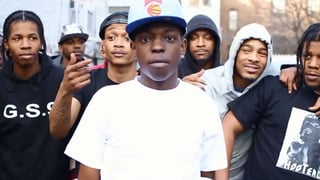
Bobby had a whirl-wind of ups and downs in the past few years. He had a hit track, signed a deal with Epic, closed a BET awards show, got arrested, was teased a few times with release buzz, and ultimately just kept getting hit with harder sentences.
However, despite the chaos, let's not forget the ONE thing that made Bobby popular. His 6 second Shmoney Dance clip.
In a world of memes and videos/gifs used for reactions -- the Shmoney Dance became synonymous with tweets and IG posts like, let's say, "When Mom says food is ready", or "When you beat your high score on Flappy Bird" (because that was also a thing then, wild times).
Folks would insert the 6 second vine clip into any and every situation.
This clip floating around instantly made the song and Bobby the talk of the web.
What can we learn from this?
We can learn that it's incredibly important to stay on upcoming trends -- as well as feed certain content out to get folks talking. This might be Snapchat today, but it very well could be the latest tool that's popping with the kids.
Also, Bobby's content started a narrative. Was it on purpose? Maybe! Maybe his team wanted folks to use his video as a "reaction meme" but either if it was planned or it wasn't it worked.
Be aware of trends and use them to your advantage.
4. Mixtapes Still Matter: Various
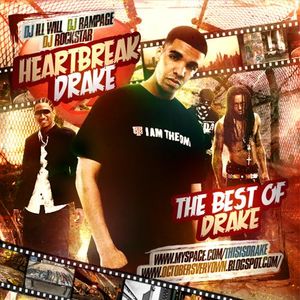
Back in the day, a mixtape was an artist hustling CDs out of trunk. These days, it's a track getting hot on SoundCloud (etc..) and then ultimately making it's way to social media, before blogs and labels start eating it up.
We saw this most recently with Lil Yachty's One Night, but hell -- we've seen this from Meek Mill, J. Cole, hell, even Drake got hot off of a mixtape.
I'd be curious to hear what the "consensus" is for "getting discovered" in this latest generation of hip hop artists. Because getting discovered via SoundCloud or a tape, is about on-par with the OG way of getting discovered. Ludacris, 50 Cent, and many other artists have found success the same way.
However, as I alluded to before, it's different. Previously, an A&R or label would get a hold of your tape and sign you. Now, it's a bit more of a slowburn. You get your work buzzing, and slowly leverage that into social media, press and beyond.
What can we learn from this?
First and foremost, we can learn that music discovery still exists. It's not just deals and alleged "industry plants", it's not about autotune and ghostwriting, it's still about music that's making the people talk.
You may not love Lil Yachty, but his track went viral.
You may be a bit tired of Fetty Wap but a SoundCloud hit turned into a viral radio smash, which led to a handful of others.
We can learn that it's still possible to get out there and hustle your own success.
4. You know, actually.. Desiigner did it right..
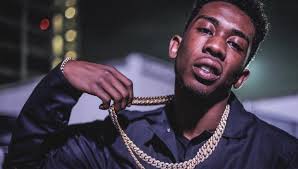
Desiigner was a relatively unknown name, until Panda became an online hit. Granted, a lot of the reason it buzzed was people were making an obvious Future comparison, which only led to more viral love.
However, what folks don't realize is that he garnered success, because he had a good team. Desiigner formulated a good network which included media and a PR team, that helped him grow as an artist.
What can we learn from this?
While Desiigner may not be the most buttoned up artist stylistically -- to some, he sounds like a Great Value-brand Future, but at the end of the day, his business was buttoned up.
Plenty of artists are out here buying onto blogs, or engaging in money-wasting moves, while Desiigner had a good team around him. Period. You can hate on his style all you want, but his moves got him somewhere, and that's something for us to discover and explore.
5. In Today's Age.. You Can Be "Different".
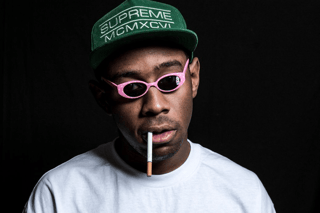
Sure, we talk about industry "clones" a lot. We talk about folks biting eachother's sound (we just did), but can we talk about people doing their own damn thing? Because we don't talk about it enough.
You see it today with Chance The Rapper and Tyler the Creator but hell even early Kanye all made moves that were "different". They used their style and stayed true to it. 'Ye wore pink polos during a time where "Gangsta Rap" was still on it's last legs. He used soul samples when no one else was.
Chance is doing things grassroots, and rapping about Jesus while no one else is. Tyler The Creator had a goofy ass Tumblr, and is anything but "stereotypical rapper".
This whole section is a "what can we learn from this", I'm talking about a concept now: and that concept is that different is still good. There's no more cookie cutter concepts, when you have the power of the internet. You have the ability to create your own fanbase, so -- do it. Stay true to who you are. If it's a good product and you're consistent -- then you're unstoppable.
Be you.

